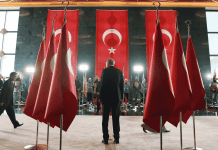A generation of men and women in the Kashmir Valley have never been inside a movie theatre, but they may finally get to see a Bollywood movie on the big screen if a prominent Kashmiri Pandit and local businessman, Vijay Dhar, has his way.
How Bollywood Movies Are Becoming ‘Pakistan Friendly’ despite Strained India-Pakistan Ties
Dhar plans to open a cinema in the capital, Srinagar, so movies can be experienced again almost 30 years after the first cinemas were shut by Islamic separatists.
“I want young people here to enjoy the same entertainment as people in the rest of India. If some object and don’t want to come, that’s fine, but for those who want to visit a cinema we need to provide that basic amenity,” said Dhar, who runs a school and a hospitality company.
The campaign against cinemas in the region began in 1989 when the Allah Tigers organised an armed rebellion against the Indian government and in favour of freedom or merger with Pakistan. The militants blamed cinemas, bars and beauty parlours as “Un-Islamic” and threatened that anyone who opposed would be punished with death.
Kashmir used to have about two dozen cinemas with names such as the Palladium and the Regal; Dhar used to own one – the Broadway. By 1990 all had closed. At the time many Kashmiris thought this was a temporary situation, but it turned out to be permanent. Most were turned into garrisons for security forces or converted into hospitals or shopping complexes. In 1996 three cinemas reopened after their owners received government assurances. The security was formidable, but three years later two closed when militants attacked the Regal, killing one moviegoer. The Neelam limped on with few visitors.
Kashmir’s snow-topped mountains and rolling meadows used to be the favourite location for Bollywood directors. For Indians used to tropical heat, a landscape of mountains and snow is a perfect fantasy. “Kashmir was the perfect backdrop for showing a romantic couple cavorting on the mountains and rolling around in the snow,” said film fan Parsa Venkateshwar Rao Jnr.
Despite the unrest, which has left 40,000 dead according to Indian government estimates, some directors continued to film in Kashmir. But while Indians enjoyed the scenery, Kashmiris were unable to see their own surroundings on the big screen.
Not everyone has reacted well to the new cinema. Some said it hardly mattered with so many films available on the internet. Others were hesitant. “I’d love to see a film, but I’d be nervous. It’s not a good idea because the situation is not good at the moment,” said houseboat owner Nawaz Butt. A hotel owner, who did not want to be named, was hostile. “With all this bloodshed, going to the cinema is a trivial issue,” he said.
Dhar is not deterred. He loves the cinema so much that he flies to Delhi once a month to gorge on films. His aim in opening a multiplex, he says, is to recover some aspects of “normalcy” that have been lost in three decades of bloodshed.
Young people needed sports, the arts and entertainment, he said. Going to the cinema was just part of a normal social life. The Kashmiri separatist leader Syed Ali Geelani has consistently opposed the reopening of cinemas. But asked if he feared that his cinema would be targeted, Dhar said: “If you start with that kind of negativity, you will never try anything in life.”
Originally Pubshed in the Guardian




